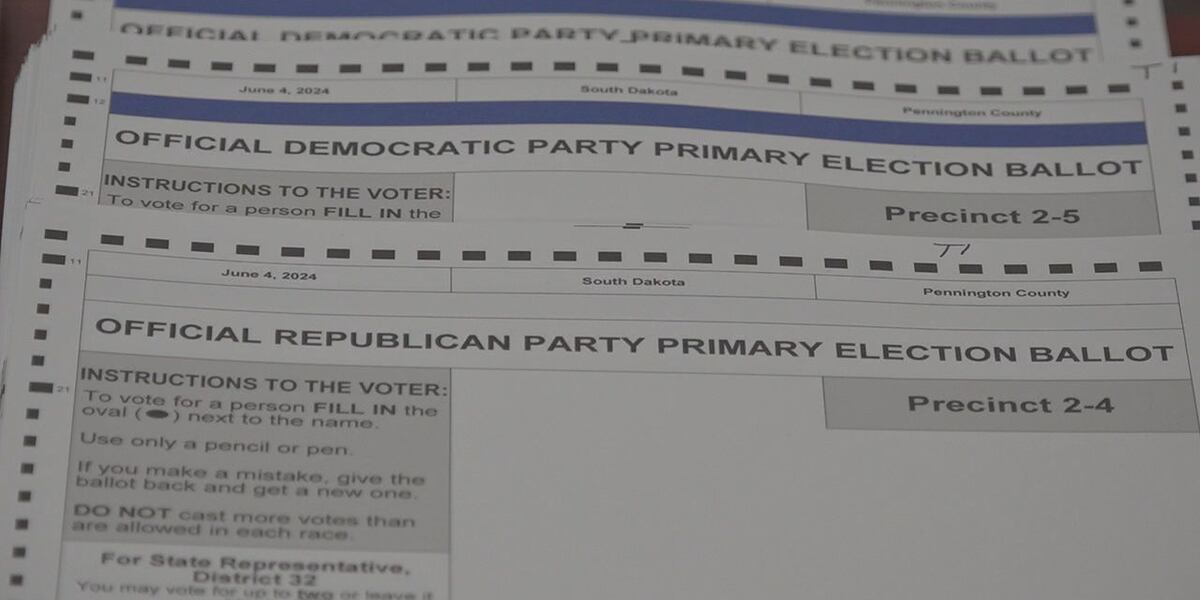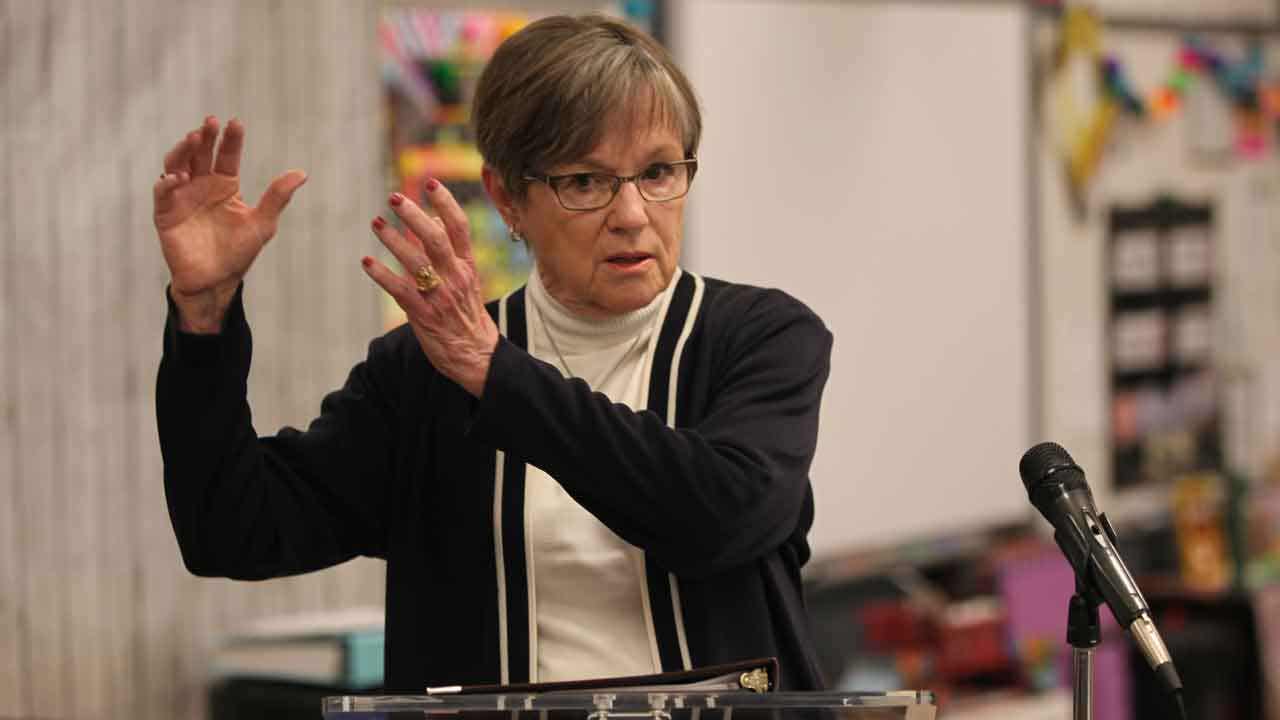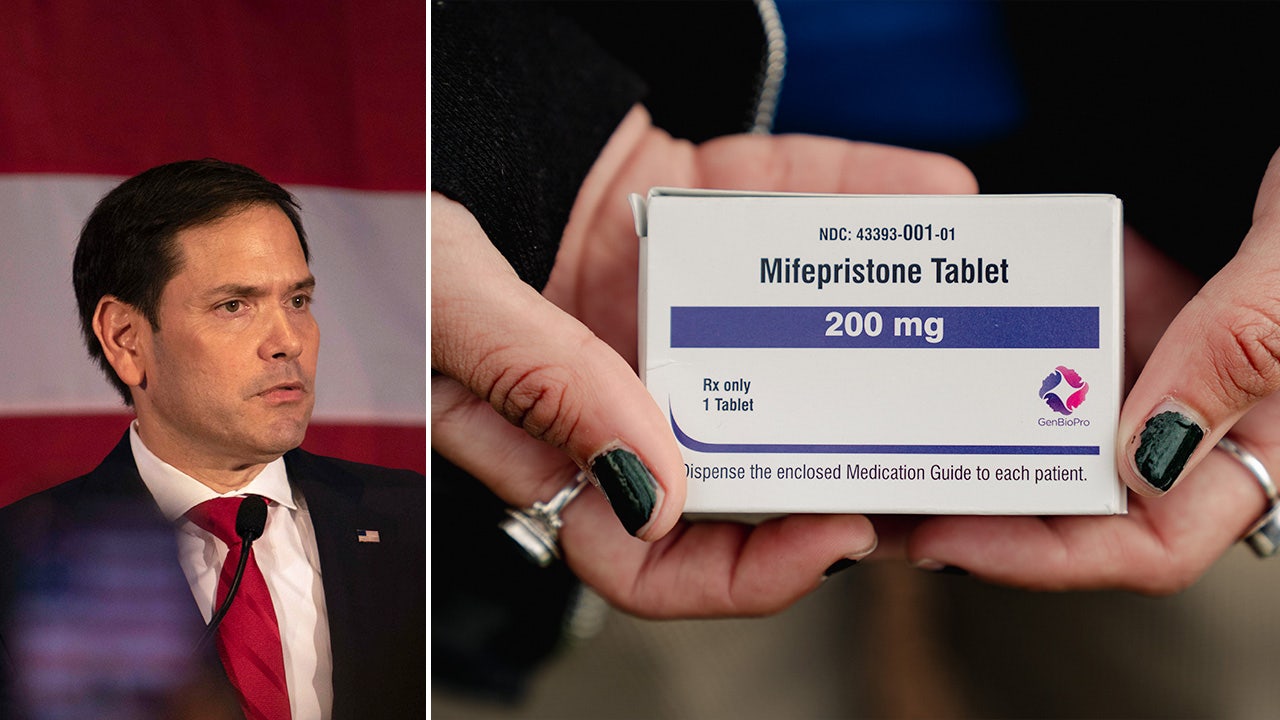Rhode Island
RI Senate to vote on gun ‘safe-storage’ law. What to know.
PROVIDENCE – When the state Senate votes Tuesday on proposed new “safe-storage” requirements for guns, it will, by chance, be doing so within days of this USA Today headline from Detroit: “School Gunman’s Dad Guilty of Manslaughter.”
There, James Crumbley, the father of a school shooter who killed four students and injured seven other people at Oxford High School in November 2021, was found guilty of failing to secure a gun at home and doing nothing to address acute signs of his son’s mental turmoil. Crumbley – and months earlier, his wife – were convicted of involuntary manslaughter.
Safe storage bill draws opposition from Republicans
Closer to home, the proposed new Rhode Island safe-storage law that emerged from a Senate committee on a straight 9-to-3 party-line vote last week followed years of heart-wrenching testimony of family members left behind by a suicide in Warwick, as well as the accidental shooting death of a Johnston teenager at the hands of a friend playing with his uncle’s unlocked gun.
The three Republicans in the Senate Judiciary Committee hearing room cast the three nay votes.
They included Senate Minority Leader Jessica de la Cruz who, in her weekly newsletter, reiterated her belief that the legislation [H2202] co-sponsored by 28 of the 37 current senators is “an infringement on our right to self-defense with a firearm in our homes.”
And she was not alone. As both a Rhode Island National Guardsman and “Firearms Policy Coalition Member,” Christopher Morin of Coventry told the lawmakers in written testimony that the requirement that firearms “be secured in locked containers or equipped with tamper-resistant locks at all times when not in use” is impractical, “could delay or prevent individuals from defending their homes and loved ones in emergencies” and “infringes on the rights of law-abiding gun owners.”
He said the penalties could also add to the trauma of “individuals and families already suffering fromaccidents involving firearms” – presumably their own.
Arguments in support of the bill
But Rhonda Brewster, the mother of the 16-year-old shot to death by his best friend in Johnston in 2022, told legislators during one of the gun hearings last week that she has a chihuahua and a Rottweiler who would alert her of an intruder in plenty of time.
Working in child protective services for the state, she said, she also sees cases that don’t make the headlines where children get into guns and shoot themselves.
“Just within the last four months, we’ve had about six cases of children having access to guns – with their parents’ home – and shooting themselves,” she said.
More: RI faith leaders implore state ‘leaders to lead’ with assault-weapons ban and safe storage law
For South Kingstown Councilwoman Patricia Alley, last week’s hearings marked the latest in a year-after-year series of visits to the State House to recount the events that led to the suicide of her sister Allyson Dosreis at age 37.
“This bill would prevent other Rhode Island families from enduring the same devastation that my family and I have gone through after the suicide of my sister, Ally,“ she told the House Judiciary Committee.
Alley told lawmakers how she and her sister got close later in life when she reunited with her birth family. But COVID and the pandemic took a toll on her sister’s hairdressing business, and then her sister’s partner “abruptly” ended their 10-year relationship and listed their house for sale. He was active duty military, Alley said, and when his firearm wasn’t with him, it was in an “easily accessible location known to the family.”
“And when she was at her lowest, she used that gun to end her life,” Alley said.
“Suicide is often an impulsive act,” she told the legislators. “If you can prevent access to a gun, you can short-circuit that impulse and save a life.”
What would the penalties be for violating the safe storage law?
The potential penalties for violating the proposed new Rhode Island safe-storage law start with a fine of up to $250 a first offense, which would be treated as a civil infraction, to a fine of up to $1,000 for a second offense and up to six months in prison, and a fine of up to $500 for three of more violations.
The penalty gets steeper – a potential year in prison and $1,000 fine – for someone “who knows or reasonably should know that a child” or someone prohibited from purchasing a firearm “is likely to gain access to the firearm.”
The penalty increases exponentially for the gun owner if the unsecured gun is obtained by a child or a person prohibited by state or federal law from having a firearm and is then used to commit a crime or cause injury. Any of those scenarios would be punishable by up to five years in prison and a fine of up to $5,000.

Rhode Island
21 states join Biden administration in bid to modernize nation’s aging grid • Rhode Island Current

Twenty-one states are joining a push by the Biden administration to modernize America’s aging electric grid, which is under pressure from growing demand, a changing power generation mix that includes lots of wind and solar and severe weather.
The administration, which has set a goal of a carbon-free power sector by 2035, announced Tuesday that the states had joined what it called the “Federal-State Modern Grid Deployment Initiative,” which is intended to “help drive grid adaptation quickly and cost-effectively to meet the challenges and opportunities that the power sector faces.”
In exchange for federal technical and financial assistance opportunities, participating states will “prioritize efforts that support the adoption of modern grid solutions to expand grid capacity and build modern grid capabilities on both new and existing transmission and distribution lines.”
That means in part focusing on ways to get more out of existing transmission lines, since building new ones can take a decade or more in some cases.
“There are technologies we can use to optimize the current infrastructure we have,” said Verna Mandez, director of transmission at Advanced Energy United, a clean energy trade group.
Those include re-conductoring existing lines to handle more juice as well as so-called grid-enhancing technologies, a suite of tools that include sensors, power-flow controls, software and hardware that can better deliver real-time weather data, among other technologies.
In many cases, those technologies have been adopted in other countries but uptake has lagged here, in part because utilities aren’t incentivized to adopt them and generally don’t face consequences as a result of grid congestion, which costs electric customers billions of dollars each year.
“Most transmission providers get more money when they build transmission projects,” Mandez said.
The White House said in a news release that adopting newer technologies “means that renewables and other clean sources of power can be integrated sooner and more cost-effectively than waiting for new transmission construction, which will address load growth challenges more rapidly, create good-paying jobs and lower Americans’ utility bills.”
The Federal Energy Regulatory Commission has also in several orders prodded utilities and grid operators to consider more use of grid-enhancing technologies.
And some states are taking action on their own. Virginia, which did not join the initiative announced Tuesday, passed legislation signed by GOP Gov. Glenn Youngkin that requires utilities to consider grid-enhancing technologies in their planning. Last year, Montana passed legislation aimed at increasing use of advanced reconductoring. Minnesota’s legislature also voted this month to add grid-enhancing technologies to the state’s transmission planning process and require some utilities to evaluate the tools for highly congested lines.
‘More tools than ever’
To get a more reliable and cleaner electric grid, as well as accommodate electric demand that’s growing for the first time in more than a decade, the U.S. needs lots of new transmission capacity, experts agree.
Last year, the U.S. Department of Energy found that almost all regions of the country would benefit from more transmission lines and a National Renewable Energy Laboratory study estimated that getting to 100% carbon-free electricity by 2035 could require anywhere from 1,400 to 10,100 miles of new high capacity transmission lines per year starting in 2026.
That’s why the Biden administration has been pushing hard to remove roadblocks to new transmission lines, which can take a decade or more to develop in some cases, and the Federal Energy Regulatory Commission published a landmark new rule on regional transmission planning and cost allocation. Last month the administration also announced a public-private partnership to upgrade 100,000 miles of transmission lines over the next five years and the Department of Energy has identified 10 potential “national interest” electric transmission corridors, a designation that would help expedite the projects and give developers access to federal financing.
“The power sector, which is responsible for a quarter of annual U.S. greenhouse gas emissions, now has more tools than ever – including unprecedented financial support, efficient permitting, and long-term regulatory certainty – to reduce pollution and upgrade the grid to support more factories, electric vehicles and other growing sources of electricity demand,” the White House said.
The states joining the effort are Arizona, California, Colorado, Connecticut, Delaware, Hawai‘i, Illinois, Kentucky, Maine, Maryland, Massachusetts, Michigan, New Jersey, New Mexico, New York, North Carolina, Oregon, Pennsylvania, Rhode Island, Washington, and Wisconsin.
GET THE MORNING HEADLINES DELIVERED TO YOUR INBOX
Rhode Island
Laughter’s the best medicine. But health care summit prompts serious discussion • Rhode Island Current

A recent episode of “South Park” featured a satirical song that portrayed America’s health care system as an endless series of forms, referrals and delays.
Not unlike a typical workday for Dr. Howard Schulman, a primary care physician based in East Providence.
“The death of primary care in Rhode Island is a death of a thousand cuts,” Schulman told lawmakers, colleagues and health care officials at the Rhode Island Health Care Summit Tuesday morning.
Schulman said he spends a lot of time clicking through screens, logging into patient record systems, authenticating those logins, then getting logged out automatically when he’s been logged in for more than a few minutes. Like many doctors, he still has to use a fax machine to share information with other medical offices, urgent cares, hospitals and nursing homes.
Report: Rhode Island hospitals are bleeding cash, but we already knew that.
The summit’s invited speakers and guests offered plenty more examples of laceration: Rhode Island’s reimbursement rates are inferior to those in neighboring states. Private hospitals are operating like public ones, often at massive losses. There aren’t enough hospital beds. Children’s teeth are rotting because of lack of access to dental care. Primary care physicians are frustrated and underpaid, and medical practices are disconnected from one another.
“At some point, every one of us will need our health care system,” said House Speaker K. Joseph Shekarchi in his opening remarks.
Yet the state’s subpar handling of a product with inevitable demand did not stop doctors and hospital leaders from cracking their own jokes.
“There’s a joke inside of medicine that the only three reasons one would practice in Rhode Island is our love of Del’s Lemonade, our love of coffee milk, or that we’re simply stupid,” Dr. Hub Brennan, an internist with a private practice in East Greenwich, told the crowd gathered in the House chamber.
“So I stress to you and I stress to my patients: I love Del’s, and I love coffee milk.”
How to strengthen primary care in Rhode Island? Start with this action plan
There are apparently so many problems it was hard to identify any singular villain during the nearly four-hour summit— which was billed as three but ran about 90 minutes longer than planned — although reimbursement rates for providers emerged as a recurring antagonist.
“The persistent hole Rhode Island is still in with lower federal health care payments than neighboring Connecticut and Massachusetts is a persistent aggravation” said U.S. Sen. Sheldon Whitehouse, who gave a federal perspective on local delivery. “An aggravation of decades. And it doesn’t lend itself to an easy solution.”
Whitehouse pointed to the All-Payer Health Equity Approaches and Development (AHEAD) initiative as one possibility — one whose application the state would need to complete by August. The AHEAD program would move participants to value-based payment, which aligns to quality of care delivered, rather than the current, widespread model of fee for service, which renders payment based on the number of services provided.
‘Where’s the media who criticizes my office repeatedly?’
In states like Massachusetts, said John Fernandez, CEO of Rhode Island’s biggest health system Lifespan, high public payer hospitals are buoyed by millions in state funds. If Rhode Island Hospital were more like Boston Medical Center, it too might see state money in its coffers.
That’s when Attorney General Peter Neronha rose from his chair and interrupted Fernandez.
“Mr. President, can you just say that again? Say that again,” Neronha asked. “So that everybody in this chamber and on television hears that point. It may be the most important point that we hear today, that you are trying to run a public hospital without public funding.”
When it was Neronha’s turn to speak, he gave mostly serious remarks, but they were not without a little acid humor.
“Maybe when they put an eight inch hole in my back, they took out that part that made me hold back a little bit,” Neronha said, referencing his 2023 surgery. “But as a state we can’t afford to hold back. We are on the precipice of a disaster.”
Is proposed sale of Roger Williams, Fatima hospitals a cure for ailing health care landscape?
The proposed merger and sale of Our Lady of Fatima Hospital in North Providence and Providence’s Roger Williams Medical Center has been a major concern for Neronha’s office, which is tasked with approving and soliciting public feedback on corporate mergers. Neronha identified the two hospitals as essential to the state’s health care system, even though he also called their owner — the California-based Prospect Medical Holdings — “lousy.”
“Do you know that right now we are in Superior Court in a closed hearing, fighting to keep Roger Williams and Fatima open?” Neronha said. “The courtroom is sealed.”
“But where’s the outcry from the media — if they’re here — about why that courtroom is sealed?” Neronha continued, with a row of reporters situated in front of him on the House floor. ”Where’s the media who criticizes my office repeatedly for not being transparent when there is nothing more important than what’s going on in that courtroom?”
Neronha said he understood why the courtroom is sealed. He was more worked up about the fact that the state doesn’t generate enough revenue to help hospitals like Fatima and Roger Williams survive and “be in the black” — a financial stability that could be reinvested in the state’s health care systems.
“I wanted to bring attention to the point that in any other state his (Fernandez’s) hospital and probably every hospital in this state would be supported by public funds,” Neronha said in his own speech later. “And what is the appetite for public funds for these hospitals? Zero.”
Medicaid in all its complexities
A number that is far greater than zero: what the state spends on public insurance programs like Medicaid. It served about 328,000 Rhode Islanders in fiscal 2022, at a total cost of $3.8 billion, with $3.2 billion of that sum going toward member benefits. The feds paid for 65% of these costs, and the state paid the other 35%, for a total in-state expenditure of about $1.3 billion.
Is it a waste? Martha L. Wofford, CEO of insurer Blue Cross Blue Shield Rhode Island, wasn’t so blunt but didn’t appear to be Medicaid’s #1 fan either. One reason: It costs her company money.
“We have a disproportionate share of government-funded health care in the state of Rhode Island,” Wofford said. “Commercial insurance pays twice what Medicare pays and more, much more, than what Medicaid pays.”
“What happens is that commercial insurance subsidizes care for all other people. And so, we really need that cross subsidization to make sure the health care system works and other providers can cover their costs.”
Kristin Sousa, who runs the state’s Medicaid office, reminded the crowd why the low-income health insurance program is important, and argued for it as “the cornerstone of our health care delivery system,” one which supports a huge variety of patients and their needs but serves as “a critical source of funding” for health care providers, too.
“I firmly believe that the Medicaid program drives the overall health care delivery system in Rhode Island,” Sousa said. “Medicaid serves as a safety net, catching those who might otherwise fall through the cracks of our healthcare delivery system.”
States differ in how they implement Medicaid expansions and extensions, but the entire system was made possible by the Affordable Care Act, known commonly by the nickname Obamacare. Since 1965, Medicaid has served adults with disabilities, but the Obama-era changes brought health care coverage to able-bodied adults with low income and no children.
Lifespan’s Fernandez was still concerned about the program’s cost to hospital operators like himself.
“Our Medicaid operating margin is negative $139 million,” he said in his speech. “You throw in some charity care at $32 million, that adds up to $170 million, just in those two populations. We shouldn’t have to lose money taking care of people.”

Issues lost in translation
The summit covered a number of administrative and provider perspectives. But where were patients’ thoughts and feelings?
Primary care doctor Schulman revealed that the high cost of having an interpreter available for non-English speaking patients made him hesitate to use them. That prompted a question from Rep. Karen Alzate, a Pawtucket Democrat.
“Do you find it difficult to want to take those patients because your office has to pay for their translation service?” Alzate asked. “So many people in my particular community don’t seek out health care for a number of reasons and then now this is creating another barrier.”
“I think it is a disincentive,” Schulman said. “I mean, when you’re, if you’re, paying a translator $200 for like a $90 visit, you just don’t feel right…You try not to pay attention to that. But I — Yes, yeah. You’re focused on the patient all the time.”
One of the summit’s final questions came from Weayonnoh Nelson-Davies, executive director of The Economic Progress Institute, and was directed at Neronha: “What are your thoughts about universal health care?”
“I think universal health care is something worth talking about,” Neronha said. “But we’re nowhere near talking about that.”
Neronha then pivoted to address the Fatima and Roger Williams situation from a different angle: The pair of hospitals treat patients of color and people with lower incomes, but they too are victims of irresponsible finance practices. “Private equity steals the money,” Neronha said. “The hospitals go under. That’s the plan and it’s deliberate.”
Nelson-Davies was content with the summit as a starting point for conversation, even if the discussion wasn’t exactly holistic — or patient-focused.
“Most of health care is outside of the health care system,” she said. “Whether people have food to eat, whether people have living wages — that all impacts health, so you cannot have a health care conversation without understanding that other piece of it.”
Was Nelson-Davies satisfied with the attorney general’s reply about universal health care?
“Well, he said, ‘We’re not quite ready yet.’ So his response sounded like he wasn’t quite ready yet,” Nelson-Davies told Rhode Island Current.
“We have to have a conversation about what universal health care could look like. If we don’t have that conversation, we don’t put together a plan, we’re never gonna get there,” Nelson-Davies said. “Is it a solution? Maybe not, but we’re not even having a conversation.”

Sen. Linda Ujifusa, a Portsmouth Democrat and longtime proponent of single-payer health care, thanked Nelson-Davies after the summit for asking the question. Ujifusa told Rhode Island Current Tuesday afternoon that she was “impressed” with the summit and the overall discussion of serious health care challenges.
While the attorney general’s reply about single-payer health care couldn’t be too “nuanced” in the given time span, Ujifusa said she was hopeful that Neronha could eventually “work in that Venn diagram of overlap” between his ideas and those of single-payer advocates.
Two speakers slated to appear Tuesday were sick. Sousa said her colleague Richard Charest, who heads the state’s Executive Office of Health and Human Services, was under the weather and couldn’t attend. Senate President Dominick Ruggiero “had medical appointments today that prevented him from attending,” said Greg Paré, Senate spokesperson, in an email.
Senate Majority Leader Ryan Pearson spoke in Ruggerio’s place and concluded the summit.
“Unfortunately, I won’t be as fired up as the general, but I’m going to do my best,” Pearson said.
GET THE MORNING HEADLINES DELIVERED TO YOUR INBOX
Rhode Island
US round-up: Arizona grows in March, Rhode Island April betting revenue dips

Casting an eye over the latest monthly US state results, iGB analyses growth in the Arizona sports betting market in March and a decline in revenue despite steady spending in Rhode Island during April.
Arizona reported year-on-year growth across revenue and handle in March. However, Rhode Island saw revenue slip to an eight-month low in April.
Starting with Arizona, which reports its monthly results at a delayed rate compared to other states. All other US states are currently publishing results for April, whereas Arizona has just released an update for March.
During March, player spending amounted to $759.8m (£595.7m/€700.3m). This is 17.8% up from $644.8m in the same month last year. It is also 19.2% ahead of $637.5m in February of this year.
Players wagered a total of $752.4m online and $5.3m at retail sportsbooks. A further $2.1m was bet through limited event wagering (LEW) operators in Arizona.
In terms of revenue, gross event wagering before the impact of free bets hit $57.5m. After deducting $19.5m in free bets, this left $38.0m in adjusted revenue, up 2.4% year-on-year and 35.7% ahead of February’s $28.0m.
Of this total, $37.2m of all adjusted revenue came from online wagering. Retail contributed just $690,469 to the total, with LEW’s share at $117,277.
Arizona generated $3.7m in tax from sports betting in March while players won $700.5m.
FanDuel retains the lead in Arizona
Looking at individual operators, Flutter Entertainment-owned FanDuel remains the leader in the Arizona online market. During March, it posted $23.7m in revenue from $265.1m in wagers.
DraftKings placed second with $18.1m in online revenue off a $255.3m handle. BetMGM followed in third with $7.4m in revenue from $94.0m in total bets.
As for the retail market, DraftKings took top spot with $1.9m in revenue, ahead of FanDuel on $1.9m, DraftKings processed $2.2m in retail wagers, compared to FanDuel on $1.8m.
Finally, in terms of LEW operators, TP Racing (Surf Paradise), was the clear winner, posting $1.1m in revenue. This accounts for more than half the LEW revenue total in March.
Rhode Island revenue down despite handle holding steady
Turning now to Rhode Island, total player spending on sports betting in April hit $37.7m. This is marginally higher than $35.5m in the same month last year but 16.0% behind $44.9m in March this year.
Players spent $31.4m betting online during the month as well as $6.3m at retail sportsbooks. The retail figure is split across two locations in Rhode Island: Twin River ($4.6m) and Tiverton Casino ($1.7m).
As for revenue, the monthly total in the state hit $2.7m. This is 10.0% behind $3.0m last year and 12.9% less than $3.1m in March.
Online betting accounted for just under $2.6m of this total, with $171,658 coming from the retail market. Twin River generated $76,942 in retail revenue, with Tiverton Casino at $94,716.
Players won $35.0m from sports betting in April, including $28.8m online.
Year-to-date handle nears $400.0m
Looking at Rhode Island in the year to date, total player spend for the 10 months to the end of April is $388.6m. This comprises $309.5m in online bets and $79.0m from retail wagering, including $52.0m from Twin River and $27.0m from Tiverton Casino.
As for revenue, this amounted to $32.6m in the same period. Of this, $26.5m came from the online sector and $6.1m retail (Twin River $3.9m and Tiverton Casino $2.2m).
In terms of player winnings, bettors in Rhode Island took away $356.0m from sports betting in the 10-month period.
Consumers in Rhode Island are now also able to access igaming after the state’s legal market opened in March.
Bally’s customers can play slots and table games via desktop or iOS mobile app. Games are available to players who are at least 21 and have an online or mobile account with Bally’s.
-

 Culture1 week ago
Culture1 week agoFrom Dairy Daddies to Trash Pandas: How branding creates fans for lower-league baseball teams
-

 World1 week ago
World1 week agoPanic in Bishkek: Why were Pakistani students attacked in Kyrgyzstan?
-

 News1 week ago
News1 week agoRed Lobster files for bankruptcy after missteps including all-you-can-eat shrimp
-

 News1 week ago
News1 week agoThe states where abortion is on the ballot in November : Consider This from NPR
-

 Politics1 week ago
Politics1 week agoMichael Cohen swore he had nothing derogatory on Trump, his ex-lawyer says – another lie – as testimony ends
-

 Movie Reviews1 week ago
Movie Reviews1 week agoMai Movie Review: Emotionally powerful lead performances in this sensitive and heart-breaking romantic film
-

 News1 week ago
News1 week agoCity of Kyle falls short of ‘Kyle’ world record
-

 Politics1 week ago
Politics1 week agoAnti-Israel agitators interrupt Blinken Senate testimony, hauled out by Capitol police



















